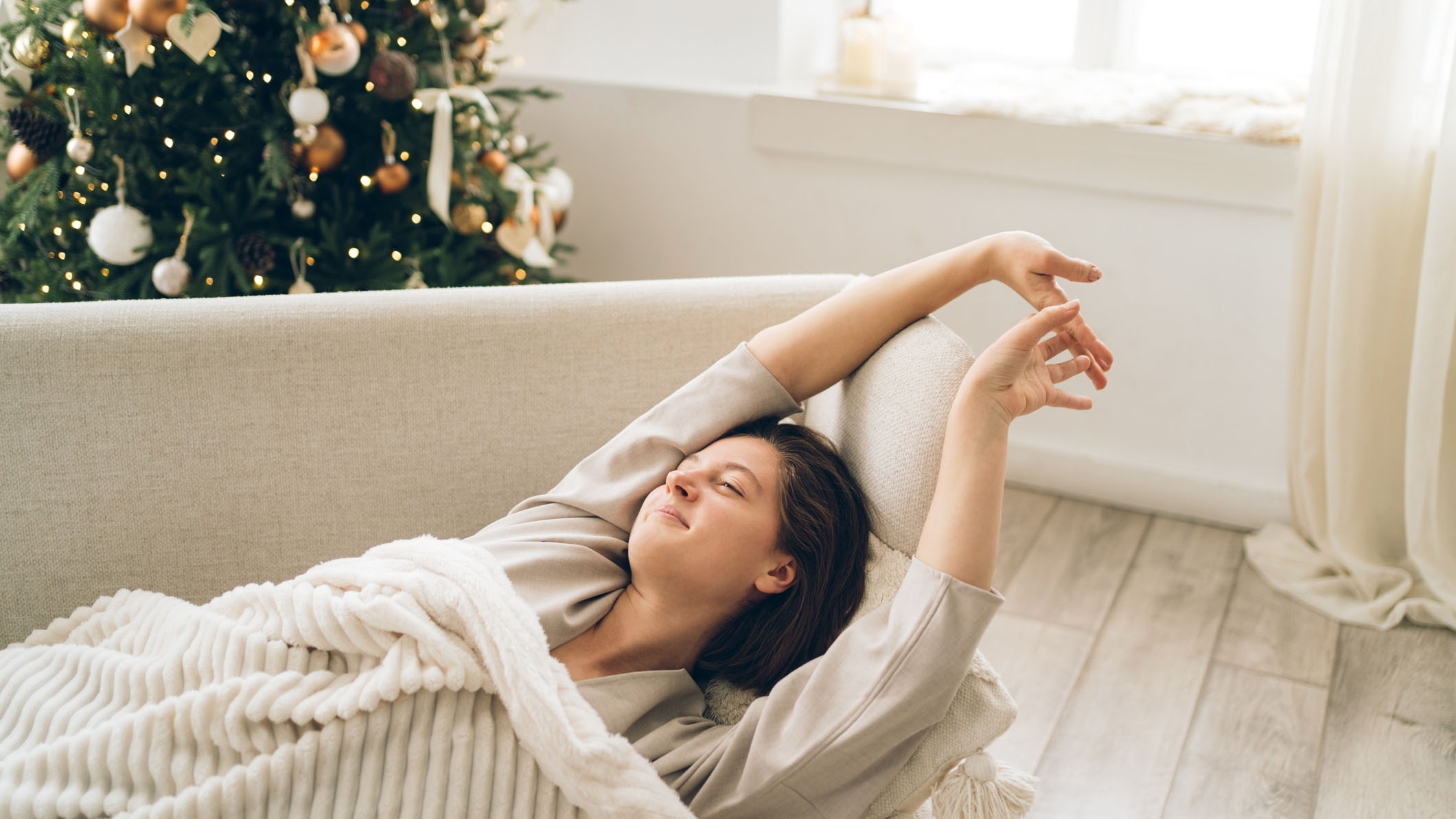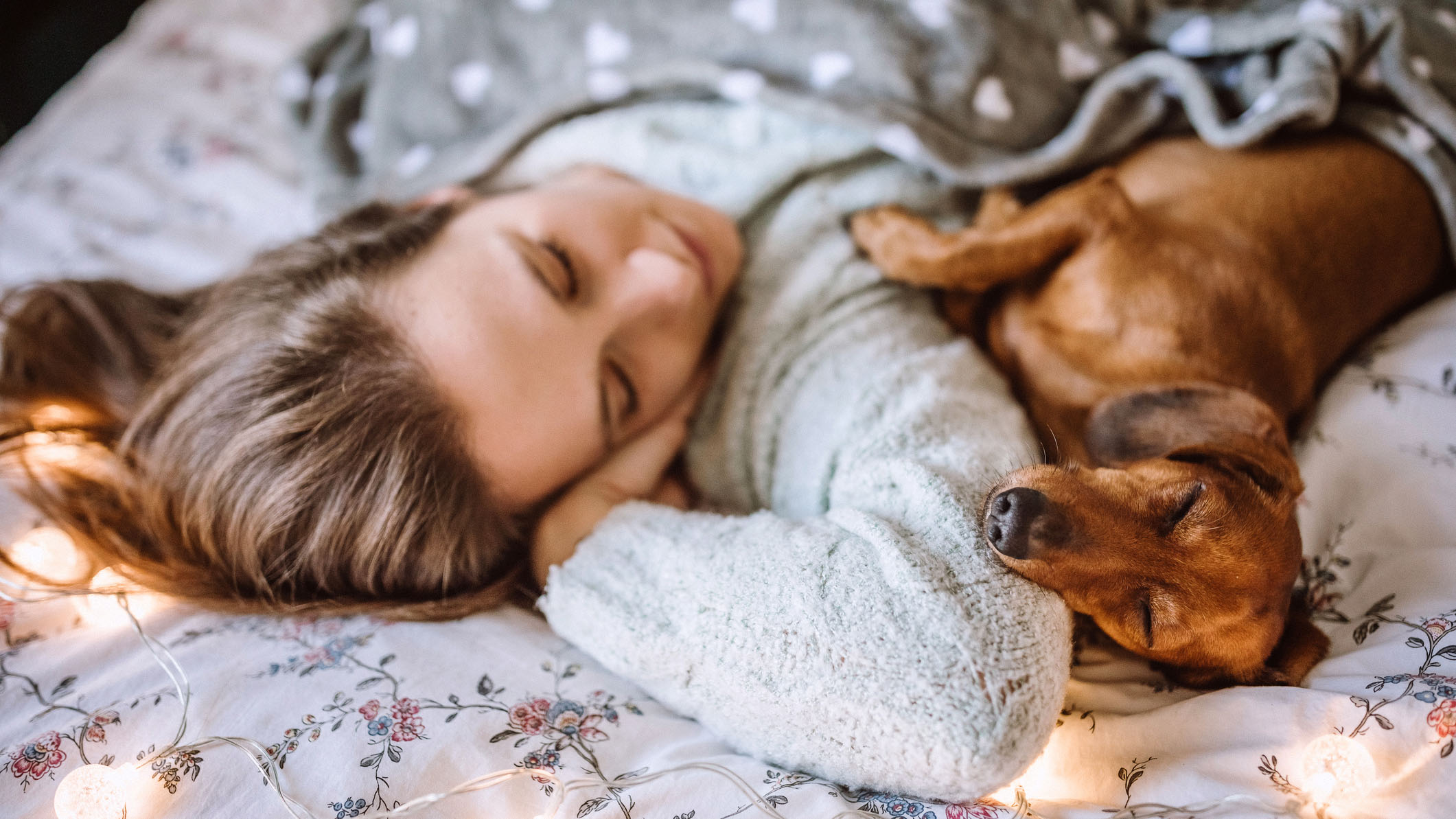
For many people, having a nap on Christmas Day is as customary as pulling a cracker. But daytime naps can interfere with your ability to fall asleep quickly and easily at night, so how can you enjoy a Christmas Day nap without setting yourself up to fail come bedtime?
Sleep expert, chartered psychologist and neuroscientist Dr Lindsay Browning recently made an appearance on daytime chat show Steph's Packed Lunch to reveal exactly how to do just that. On the show Dr Browning shared her seven tips for how to have the perfect daytime nap, how long to sleep for and when, and why napping on Christmas Day (and indeed any other day) can be very good for you.
From sleeping on the best mattress for your body to getting your caffeine fix (yes, you read that correctly), these are Dr Browning's top recommendations for how to have the perfect nap on Christmas Day...
1. Schedule your nap for after Christmas lunch
According to Dr Browning, the best time to take a nap (or a "siesta") is around lunchtime. "That's because we have our circadian rhythm," she told host Steph McGovern. "We have a dip around that time where we're almost biologically supposed to have a nap." So, one you've finished your Turkey or nut roast, try to take some time out for a festive siesta.
2. Block out daytime disturbances
While lunchtime may biologically be the best time for a nap, Dr Browning did acknowledge that afternoon sunlight can make it harder to fall sleep. To prevent being disturbed by any light, Dr Browning recommends using a sleep mask.
She also advises blocking out daytime noise from other rooms in your home or from the street outside. "If you live somewhere urban, then there'd be lots of noise outside. Put some white noise or pink noise on or some sleep sounds to help to drown out those external noises."

3. Aim for a 20-minute power nap
If you need a reboot but don't want to spend a chunk of Christmas Day asleep, there's good news: all you need to feel refreshed is a 20-minute nap. "It'll keep you in that lightest part of sleep," Dr Browning explains. "And after 20 minutes you'll wake up feeling alert and refreshed."
If you need a bigger break from the festive celebrations or you're particularly tired, you can nap for 90 minutes (a full sleep cycle for most adults). However, the duration of your nap should not last anywhere in between 20 minutes and 90 minutes, as this can cause sleep inertia – that 'punch drunk' feeling most of us have upon waking up in the middle of a sleep cycle.
4. Take a "Nappuccino" (a coffee nap)
Yes, we know drinking coffee directly before your bedtime at night is a huge mistake, but a caffeine fix (or a 'Nappuccino') is good for napping for some people. According to the sleep expert, caffeine can help to cut your nap down to 20 minutes, so you can avoid that groggy feeling upon waking.
"Down a coffee, and then take yourself for a 20 minute nap," advises Dr Browning. "Now, the caffeine hasn't hit your system yet, so you'll be able to fall asleep. But by the time you wake up from the nap, it'll be in your system so you'll have been refreshed for having that little top up."
5. Daytime naps are best in bed
Sounds like an obvious one, but your own bed really is the best place to rest. "If we fall asleep on the chair or on the sofa, then we're kind of teaching ourselves that that's the place that we should sleep," she explained during her appearance. "And that's when some people fall asleep you know in front of the TV in the evening."
However, during the holidays when many people are visiting relatives or travelling, your cosy bed may not be in reach. If this the case, the sleep expert recommends using a neck or travel pillow for a decent sleep wherever you are.







